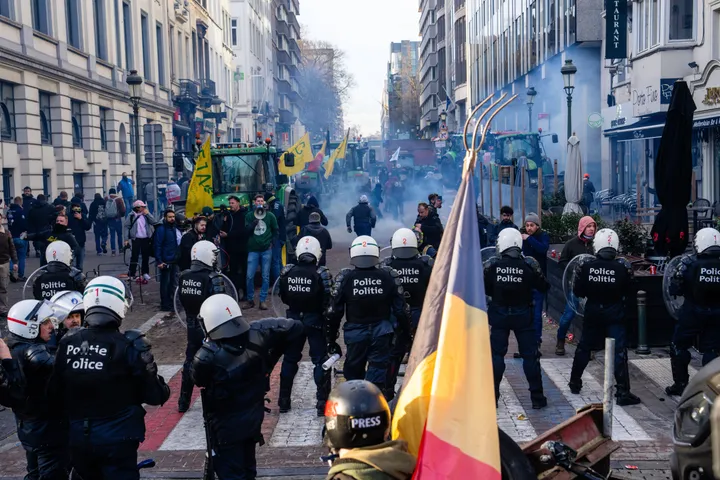A Russian natural gas embargo will cause deep recessions in Hungary, Slovakia, the Czech Republic and Italy unless countries can cooperate more to share alternative supplies, the International Monetary Fund has said.
IMF researchers said on Tuesday in a blog posting that some countries could face shortages of as much as 40 percent of their normal gas consumption in the event of a total cut-off of Russian gas.
Hungary would suffer the most economically from such an embargo, with a reduction of more than 6 percent in gross domestic product, while Slovakia, the Czech Republic and Italy could see GDP shrink by 5 percent if alternate gas supplies, including liquefied natural gas, is impeded from flowing freely to where it is needed.
Under the more optimistic scenario of a fully integrated market, the economic damage is reduced, with Hungary seeing a GDP reduction of more than 3 percent, Slovakia and Italy suffering a GDP reduction of more than 2 percent and the Czech Republic's GDP shrinking less than 2 percent.
READ MORE:Europe on edge as Nord Stream Russian gas link enters maintenance
Alternative supplies from global markets
Germany's GDP would shrink by the high 2 percent range under the more dire scenario and just over 1 percent under the more optimistic scenario, due to access to alternative energy sources and the ability to lower consumption.
But German economic activity could be reduced by 2.7 percent in 2023, with higher wholesale gas prices pushing German inflation up by another 2 percentage points in 2022 and 2023.
The IMF researchers said European infrastructure and global supply have coped so far, with a 60 percent drop in Russian gas deliveries since June 2021.
Total gas consumption in the first quarter, during which Russia launched its offensive in Ukraine, triggering Western economic sanctions, was down 9 percent from a year earlier, and alternative supplies are being tapped, especially LNG from global markets.
"Our work suggests that a reduction of up to 70 percent in Russian gas could be managed in the short term by accessing alternative supplies and energy sources and given reduced demand from previously high prices," the researchers said.
READ MORE:France signs energy deal with UAE in move to end dependency on Russia
























